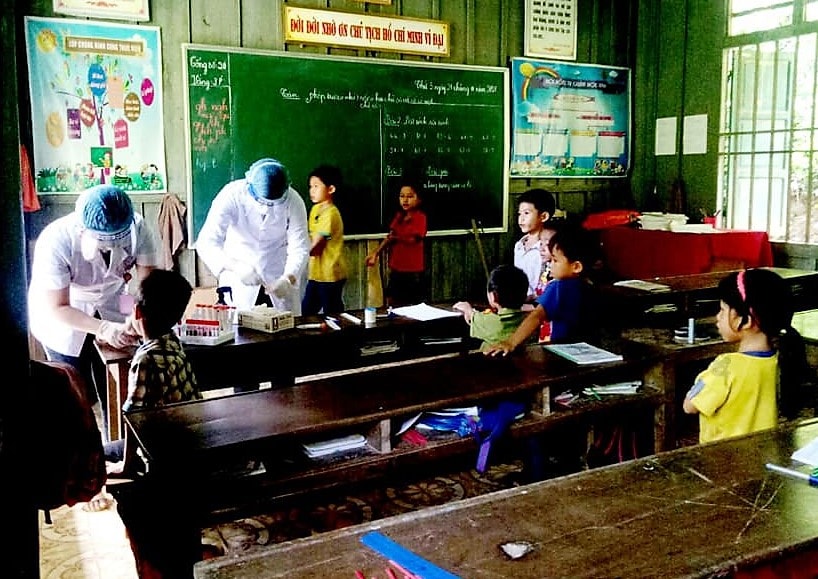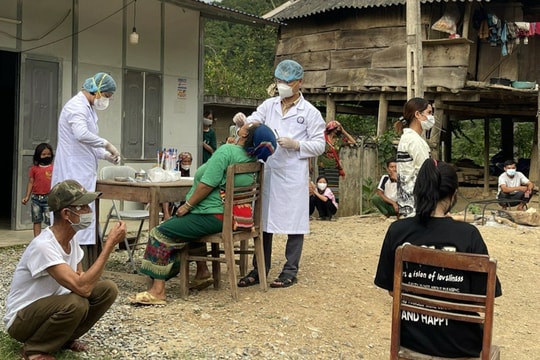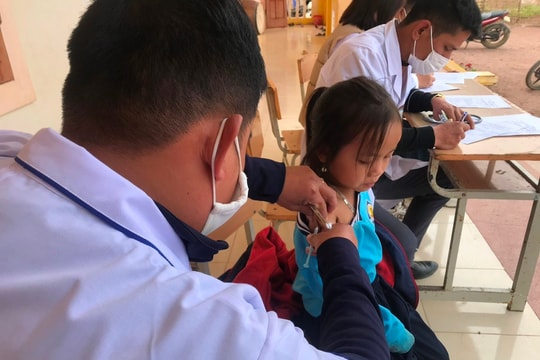3 cases of diphtheria appeared in Ky Son district
(Baonghean.vn) - After detecting 3 cases of diphtheria in Ky Son district, Nghe An health sector urgently deployed epidemic prevention and control work.
Centers for Disease Control (CDC)Nghe AnInformation: After detecting 3 casesdiphtheriaIn Huu Lap commune, Ky Son district, on October 21-22, implementing the direction of Nghe An Department of Health, CDC established a working group to coordinate with Ky Son district authorities to deploy diphtheria prevention and control work in Huu Lap commune.
 |
| 300 children given antibiotics to prevent diphtheria. Photo: Thanh Chung |
In Huu Lap commune, the working group inspected the situation, conducted an epidemiological investigation, collected 24 samples to confirm diphtheria bacteria and screened children at two schools in Cha Lan and Xop Thang villages, and gave 300 children antibiotics to prevent diphtheria.
The CDC has instructed localities to isolate, isolate and disinfect the entire epidemic area, and control antibiotic prophylaxis. In addition, it requires localities to review the subjects to develop plans and synchronously deploy anti-epidemic measures to prevent and control the epidemic in a timely manner, reducing the incidence of diphtheria.
Currently, the health of 3 diphtheria patients being treated at the Tropical Diseases Department of Nghe An Obstetrics and Pediatrics Hospital is stable and they are preparing to be discharged.
Diphtheria is an acute infectious and toxic disease caused by diphtheria bacteria; the disease is common in children, but can also occur in adults if they are not immune. The disease is easily transmitted through the respiratory tract or through direct contact with secretions from the nasal mucosa of patients or healthy people carrying the virus when coughing or sneezing, especially in crowded residential areas or places with poor hygiene conditions.
Symptoms can range from mild to severe, and severe cases can cause complications and death. Previously, the disease was quite common in most localities across the country; since the diphtheria vaccine was included in the expanded immunization program, the disease has been controlled and only a few sporadic cases have been recorded due to lack of vaccination, often occurring in remote areas with low vaccination rates. Currently, diphtheria has not been eliminated in our country, so people can still get the disease if they are not immune due to lack of vaccination and exposure to the pathogen.








